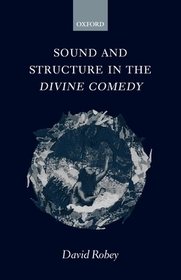
Sound and Structure in the Divine Comedy
-
10% KEDVEZMÉNY?
- A kedvezmény csak az 'Értesítés a kedvenc témákról' hírlevelünk címzettjeinek rendeléseire érvényes.
- Kiadói listaár GBP 62.00
-
29 620 Ft (28 210 Ft + 5% áfa)
Az ár azért becsült, mert a rendelés pillanatában nem lehet pontosan tudni, hogy a beérkezéskor milyen lesz a forint árfolyama az adott termék eredeti devizájához képest. Ha a forint romlana, kissé többet, ha javulna, kissé kevesebbet kell majd fizetnie.
- Kedvezmény(ek) 10% (cc. 2 962 Ft off)
- Kedvezményes ár 26 658 Ft (25 389 Ft + 5% áfa)
Iratkozzon fel most és részesüljön kedvezőbb árainkból!
Feliratkozom
29 620 Ft

Beszerezhetőség
Megrendelésre a kiadó utánnyomja a könyvet. Rendelhető, de a szokásosnál kicsit lassabban érkezik meg.
Why don't you give exact delivery time?
A beszerzés időigényét az eddigi tapasztalatokra alapozva adjuk meg. Azért becsült, mert a terméket külföldről hozzuk be, így a kiadó kiszolgálásának pillanatnyi gyorsaságától is függ. A megadottnál gyorsabb és lassabb szállítás is elképzelhető, de mindent megteszünk, hogy Ön a lehető leghamarabb jusson hozzá a termékhez.
A termék adatai:
- Kiadó OUP Oxford
- Megjelenés dátuma 2000. december 21.
- ISBN 9780198184980
- Kötéstípus Keménykötés
- Terjedelem214 oldal
- Méret 242x162x21 mm
- Súly 480 g
- Nyelv angol
- Illusztrációk numerous tables 0
Kategóriák
Rövid leírás:
The book makes a pioneering use of based procedures to describe and analyze the sounds of Dante's Divine Comedy. For all the force and originality of the poem's language and style, the structure and effect of its sounds have remained relatively unexplored. The study leads to a variety of new conclusions on this subject, and provides an indispensable reference tool for further work in the area.
TöbbHosszú leírás:
The importance of sound in poetry is indisputable, yet it is not at all an easy subject to discuss, and is rarely treated systematically by literary scholars. This book uses a variety of computer-based processes to construct a systematic analytical description of the sounds of Dante's Divine Comedy in the sense of their overall distribution within the text. The description is developed through a comparative treatment of the same features in a range of related texts, with a view to defining the distinctive characteristics of Dante's practice; and by a discussion of the function and effect of sounds in the work, with special attention to unusually high incidences of particular features. The book is thus both a contribution to the scholarly debate about Dante's poem, and an illustration and discussion of the ways in which new electronic technology can be used for this kind of purpose.
Taking advantage of the regularity of Italian orthography, the book begins by using an almost wholly electronic analysis to study the distribution of vocalic and consonantal phonemes and of assonances and alliterations in the text of the Comedy. This is followed by an extensive discussion of the related topic of rhyme, also susceptible of treatment by almost entirely electronic means. The next part of the book deals with rhythmical and metrical structures, and as a result has required a much greater element of manual intervention. A full discussion of syllable divisions in the Comedy and related texts is the necessary first step in the treatment of rhythm. This is followed by a discussion of the theoretical problems involved in the definition of accented syllables in verse, and the formulation a set of principles for resolving them, which are then systematically applied. The outcome is the identification of some distinctive rhythmical tendencies in Dante's work, and a discussion of the effect of certain kinds of rhythmical structure in the poem. The final chapter's contribution is broadly contextual, describing and discussing the theoretical and methodological starting-points - mainly in Formalism and structuralism - of the numerical analysis with which the rest of the book is concerned.
The value of this fine book by David Robey is most of all methodological ... a study of this kind provides important material for all subsequent discussions, and it certainly achieves its aim of presenting a basic text for future computerized studies of metrics
Tartalomjegyzék:
List of Tables
Introduction
Alliteration and Assonance
Rhyme
Counting Syllables
Accent
Formalism, Structuralism, and Semiotics in the Criticism of the Comedy
Bibliography




